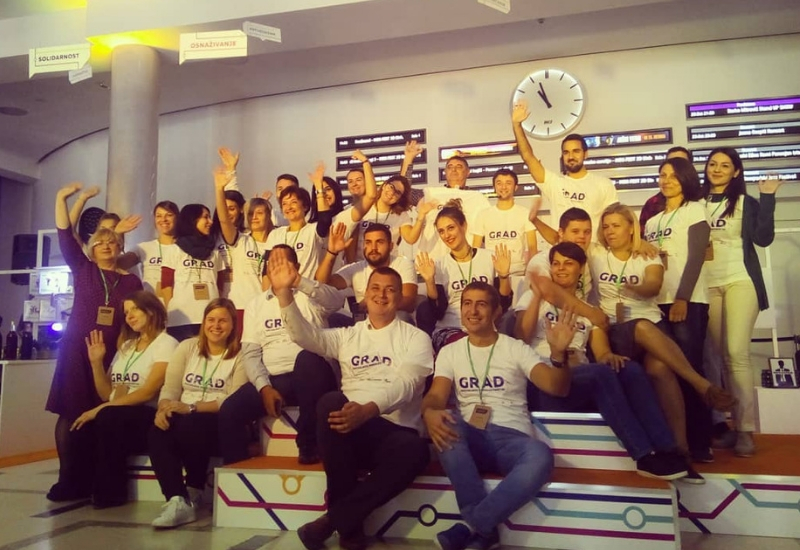On Tuesday, 16th October Social Entreprises Day was held in Belgrade. During the event 21 businesses which took part in the "Youth Employment Promotion" program, run by the German Agency for International Cooperation (GIZ), together with the Serbian Ministry of Youth and Sport.
What are social enterprises? Which enterprises of this kind exist in Serbia? Is this a sustainable business model and what are the consequences of the lack of legal framework for such businesses?
The answers to these and many other questions were to be found at an event called City of Social Enterprises, organized by Smart kolektiv, Social Impact Award, GIZ Youth Employment Promotion and Reflektor theater. The small fair was an opportunity for the following businesses to present their work: Caritas, Zaječar Initiative, Chrono, Our House (Naša kuća), Agro Iris, Koba Yagi, organization Together (Zajednoi), Equine Club Aranđelovac (Konjički klub Aranđelovac), IAN Telecentar, Centar for Youth Employment (Centar za obuku i radno angažovanje mladih), Timok Youth Center (Timočki omladinski centar), Granny’s Recipe from the South (Nanin recept s juga), Ecocetas, kvART, Mahala 1, Reflektor theater, Do-Earn (Uradi-Zaradi), Youth Education Center (Omladinski edukativni centar), Gardeners (Vrtlari), Center for moms (Centar za mame) and Nostalgia (Kiri123).
The program for support which these businesses participate in includes financial assistance, but also full consultancy services and work with experts. In an intensive work with consultants lasting 30 days, business have in different ways improved their work, for example through training on financial management and measuring social impact.
Apart from the presentation of the businesses, a conference on the topic of social enterprises was also part of the event. Andreja Rosandić, an expert for social entrepreneurship and consultant on the program, provided insight into the state of social entrepreneurship in the Western Balkans. In her presentation, she focused on how enterprises such as these function within the existing systems, especially in regards to incomplete or non-existing legal frameworks.
Additionally, as in the past few weeks the first evaluation of the program took place, Andreja presented the key recommendations for the further development of this support program, which include a small number of enterprises for easier consultancy, a great focus on the financial part of capacity building as well as increasing the visibility of the entire sector.
After the presentations, two panels provided the participants to share their experience.
Gardeners is a company that started out as a small farm and grew into a social enterprise with a mission to encourage young people to live and work in the country. Branislav Sokić pointed out that Gardeners’ participation in the program has significantly helped its development (for example, it helped them take part in the Fancy Food Fair in New York).
Milica Čalija, who has worked as a consultant in the program, pointed out that one of its main goals was to teach enterprises how to measure their social impact. As she explained, this is crucial in getting support from big companies, which are increasingly recognizing the value of social responsibility. An example of this was given by Boban Radosavljević in front of the Center for Youth Employment, whose social enterprise project Franchise for the Village was supported by three big companies - Beba Kids, Crane Engineering and SCS Plus.
During the second panel, Maja Vračević from the creative studio kvART (which supports women with disabilities) has pointed out that the program helped the studio focus its services on web and graphic design, as those most financially sustainable. Speaking in front of Our House, Anica Spasov once again highlighted the importance of networking for social enterprises:
“This way we encourage each other, reach new ideas, cooperate and exchange information. And this is of course extremely important for small, developing sector."
The event was concluded with the presentation of Social Impact Awards, which were given out at the end of a student social enterprises competition. The competition was open to young individuals or teams with ideas which can help solve certain social and economic issues.
Source: facebook.com

